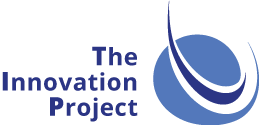 A Partnership between The Innovation Project and the Mastery Transcript Consortium
A Partnership between The Innovation Project and the Mastery Transcript Consortium
The traditional high school transcript is a tangible paper record of a student’s academic record in high school. In spite of its ubiquity and convenience, a growing coalition of education leaders, employers, and others have recognized the traditional transcript’s shortcomings: It reduces a student’s high school experiences to a collection of courses and letter grades. It constrains innovation in how schools structure learning experiences. It limits how students show what they have learned, where they have excelled, and what they love doing. It encourages the segmentation of learning into single subjects. And it impedes the pursuit of educational equity and excellence.
We propose an alternative. The Innovation Project (TIP), a nonprofit collaborative working group of school district superintendents and their teams, will work with five districts to capture the experiences of a diverse group of high school students in Mastery Transcripts—unique digital records that reshape how students showcase their skills, talents, passions, and aspirations. TIP will collect feedback from students, educators, and representatives of higher education, industry, and the military, conducting a detailed analysis of the Mastery Transcript compared with the traditional transcript. This will provide a framework for shifting participating districts approaches to the transcript—from being a static product, generated after years of study, to being a formative element shaping the student experience from the moment he or she enters high school up to and through a widening array of post-graduate options.
This project will include a consistent and purposeful focus on equity—on identifying, documenting, and addressing equity-related issues arising in transcript development and student advising. We will examine project processes and outcomes as they relate to students of different racial and socioeconomic backgrounds and those with varying long-term plans and levels and types of high school engagement.
